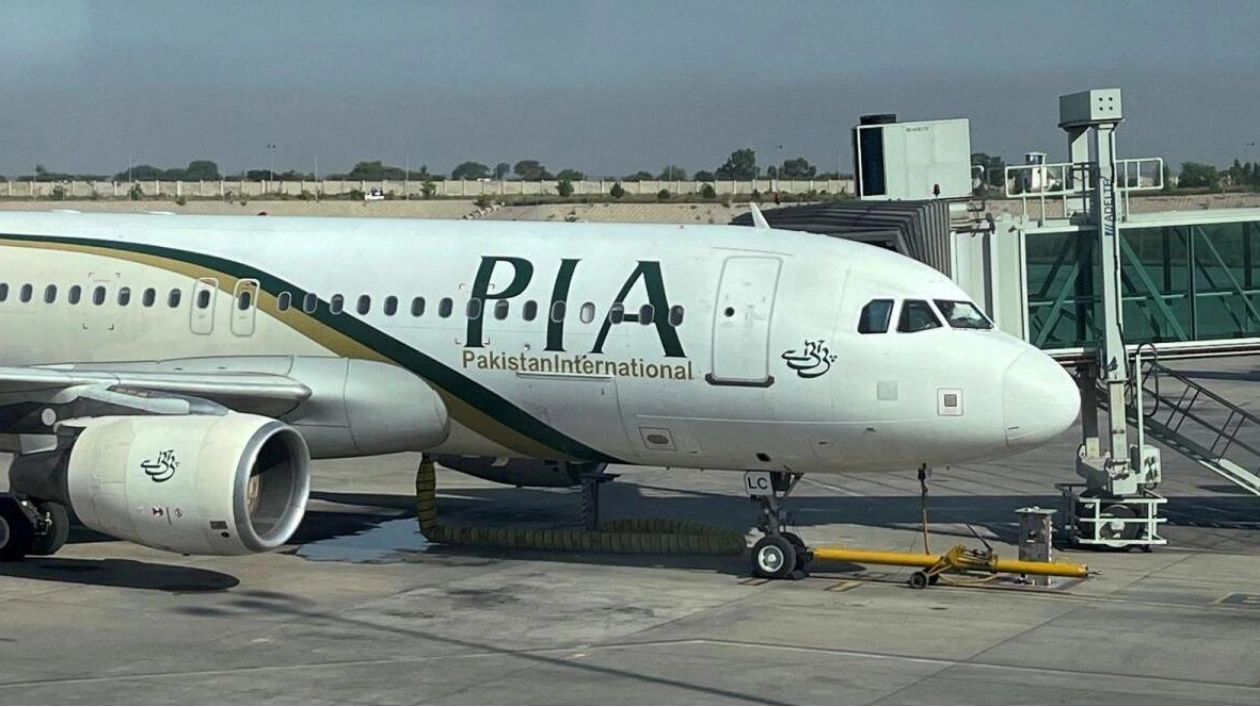A Pakistan International Airlines passenger plane at Islamabad International Airport, Pakistan, on October 3, 2023. — Reuters
The final bidding process for the privatisation of Pakistan International Airlines saw only one bid of 10 billion Pakistani rupees ($36 million) for a 60 per cent stake in the national flag carrier, according to the Privatisation Ministry. The government had pre-qualified six groups in June, but only real-estate development company Blue World City participated in the bidding process, submitting a bid below the government-set minimum price of 85 billion Pakistani rupees.
Cash-strapped Pakistan aimed to offload a 51-100 per cent stake in debt-ridden PIA to raise funds and reform state-owned enterprises as part of a $7 billion International Monetary Fund programme. The Privatisation Commission requested the bidder to match the minimum bid. However, Blue World City Chairman Saad Nazir maintained their offer, stating, "We wish the government all the best if they don’t want to accept our bid." Nazir later told Reuters that raising their bid did not make commercial sense.
Nazir added that if the government did not accept their offer, they would consider starting their own airline. He questioned the government's 85 billion minimum price, suggesting it was not based on a correct financial model for an organisation with "significant leakages". Mohammed Sohail, CEO of Topline Securities, noted that the gap between the offer and reference price would require the government to either consider this bid or revisit their strategy regarding the airline's privatisation.
Officials from three groups that chose not to bid anonymously expressed concerns about the government's long-term commitment to agreements made for the flag carrier. One executive worried about policy continuity under a new government. The current government of Prime Minister Shehbaz Sharif relies on a coalition of disparate political parties.
The disposal of PIA has been avoided by previous governments due to its unpopularity and potential layoffs. Concerns over policy continuity and contract honouring were highlighted by the government's recent termination of power purchase contracts with five private companies and the renegotiation of other sovereign guaranteed pacts. Sakib Sherani, an economist at Macro Economic Insights, noted that changes in Pakistan's decade-old agreements with private power projects raise the risk of investing in Pakistan, even with sovereign contracts and guarantees.
Potential bidders for the PIA stake also cited inconsistent government communication, unattractive terms and taxes on the sector, and the flag carrier's legacy issues and reputation.
Source link: https://www.khaleejtimes.com






